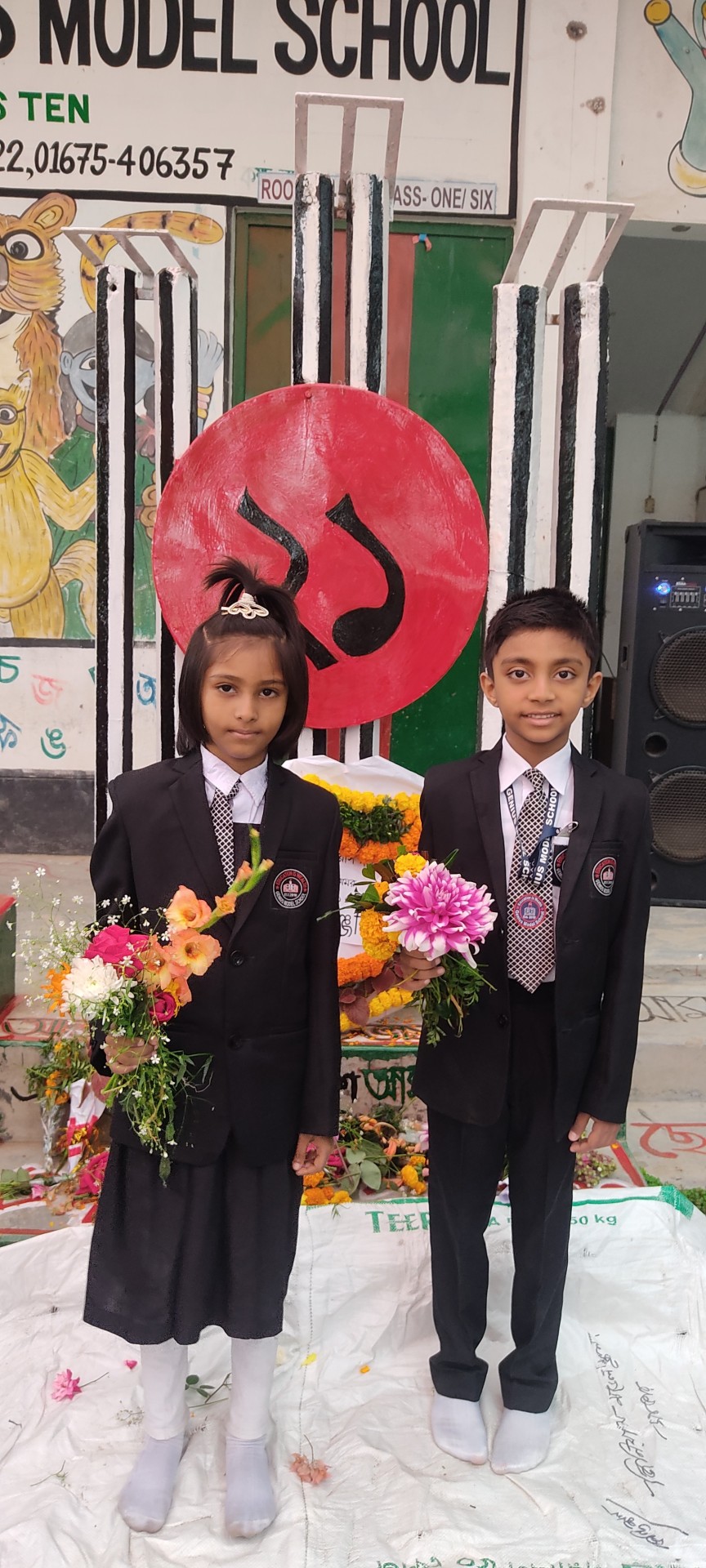#indrani halder
Explore tagged Tumblr posts
Text

ভালোবাসি: শরীর যেখানে পণ্য, সম্পর্ক সেখানে নগন্য | Bhalobashi: A New Bengali Short Film Full Short Film Link: https://www.youtube.com/watch?v=qJxuD4uHBaM
🧑 Credits: Story Name: Bhalobashi Cast: Bapi Das, Indrani Chatterjee and Abhishikta Dey Story, Screenplay & Direction: Sankalpa Dasgupta Head Assistant Directors: Dipa Chowdhury and Abhijit Das Cinematography: Joy Roy Editor: Suman & Arshi Background Music: Abhishek Bhattacharjee (Imon) Singer: Somdatta Bhattacharjee Lyricist & Composer: Rabindranath Tagore Makeup Man: Lydon Ghazi Assistant Makeup Man: Govinda Halder Production Controller: Shaibal Dey Art Direction: Soumen Adhikari Acknowledgments: Resident of Tajpur Special thanks to: Parag Dutta Production Support: Rag Notation Studio and Enakhi Studio Produced: Dev Aditya Sinha Roy, Siddharth Paul and Debarati Singh Roy Management: Samya Roy Digital Advisor: Sanjay Sen @StudioViolina Label: @OnnoyoMonon
️⃣ HashTag:
bhalobashi #newbanglashortfilm #shortmovie #banglanatok #ভালোবাসি #newshortfilm #lovestory #bengalicinema #romanticstory
Thanks for Watching🙏🏻
1 note
·
View note
Text
Biyer Phool | বিয়ের ফুল | Bengali Movie | Prasenjit | Rani Mukherjee | Indrani Halder | Subtitled HD
Biyer Phool | বিয়ের ফুল | Bengali Movie | Prasenjit | Rani Mukherjee | Indrani Halder | Subtitled HD
If video is unavailable then how to watch? Download any VPN and connect to us/uk. Click here this button 👇👇 Click Here If the video shows unavailable? you can also download it. Hellow guys, Welcome to my website, and you are watching Biyer Phool | বিয়ের ফুল | Bengali Movie | Prasenjit | Rani Mukherjee | Indrani Halder | Subtitled HD. and this vIdeo is uploaded by Bengali Movies – Channel B…
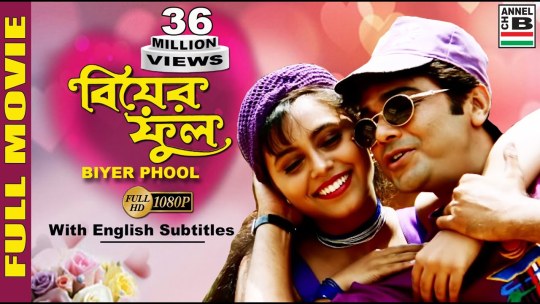
View On WordPress
0 notes
Text
Ki Name Dakbo Tomake Lyrics | কী নামে ডাকবো তোমাকে লিরিক্স | Prosenjit | Indrani Halder
Ki Name Dakbo Tomake Lyrics | কী নামে ডাকবো তোমাকে লিরিক্স | Prosenjit | Indrani Halder
Ki Name Dakbo Tomake Song Is Sung by Babul Supriyo And Kabita Krishnamurthy from Barkane Bengali Movie. Starring: Prosenjit Chatterjee, Indrani Halder, Dipankar Dey And Lily Chakraborty. Music Composed by Ashish Kumar And Song Lyrics In Bengali Written by Lakshikanto Ray. Ki Name Dakbo Tomake Song Ki Name Dakbo Tomake Song Details: Song : Ki Naame Dakbo Tomake Movie : Barkane (2002) Singer :…
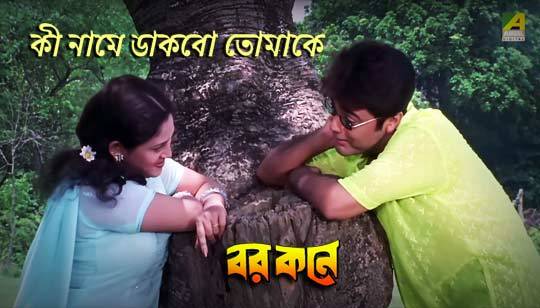
View On WordPress
#Babul Supriyo#Barkane (2002)#Bengali Lyrics#Indrani Halder#Ki Name Dakbo Tomake Lyrics#Ki Name Dakbo Tomake Song Lyrics In Bengali#Prosenjit#Prosenjit Chatterjee#ইন্দ্রানী হালদার#কী নামে ডাকবো তোমাকে লিরিক্স#প্রসেনজিৎ
0 notes
Photo
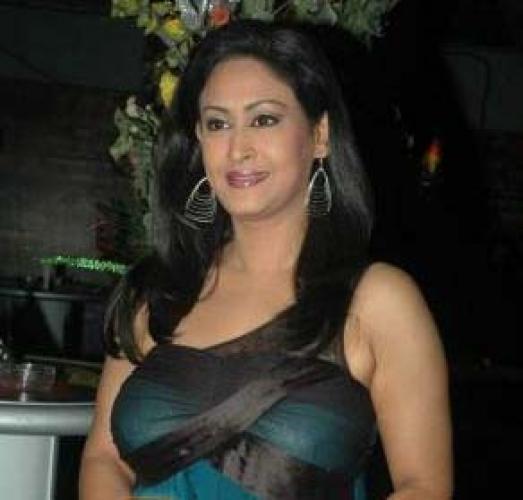
Indrani Halder. The bindings hold hot heavy.
5 notes
·
View notes
Text
Chandramukhi Serial Full Story

Chandramukhi Serial Full Story Episode
Chandramukhi Serial Full Story Zee Tv
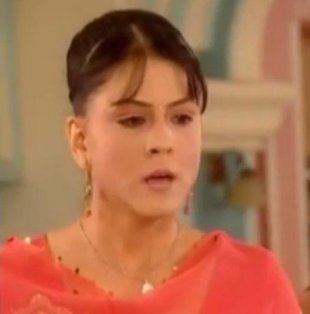
Watch FIR tv serial full episodes videos online! FIR, a Tv show aired on SAB Tv is a comedy show with amusing & entertaining comedy and is being broadcast Monday to Friday – Hindishows.com. The plot of 'Chandramukhi' revolves around a woman who suffers from a mental disorder affecting a family and a psychiatrist who risks his life to save hers. Readmore 03 /6 'Santosh Subramaniam' - 2008.
Chandra Mukhi is a 1993 Hindi-language Indian feature film directed by Debaloy Dey starring Sridevi, Salman Khan, Mohnish Behl and Pran in lead roles. Chandra Mukhi Film poster Directed byDebaloy Dey Produced byBubby Kent Written byAnwar Khan Story bySalman Khan StarringSridevi Salman Khan Pran Gulshan Grover Mohnish Behl Puneet Issar Music byAnand-Milind Edited byMukhtar Ahmed Release date 22 October 1993 Running time 152 minutes CountryIndia LanguageHindi.
Chandramukhi is one of the pivotal characters in the 1917 Bengali novel Devdas by Sarat Chandra Chattopadhyay. Her character was inspired by the Hindu mystical singer Meera, who devoted her life to Lord Krishna; similarly Chandramukhi devoted her life to Devdas.
ChandramukhiDevdas characterCreated bySarat Chandra ChattopadhyayPortrayed byChandrabati Devi Vyjayanthimala Madhuri Dixit Kalki Koechlin Anwara For more 'Performers'In-universe informationAliasChandrikaNicknameLeniRaceIndian peopleGenderFemaleOccupationTawaif CourtesanSpouseDevdas MukherjeeReligionHindu
Chandramukhi is one of the pivotal characters in the 1917 Bengali novelDevdas by Sarat Chandra Chattopadhyay. Her character was inspired by the Hindumystical singer Meera, who devoted her life to Lord Krishna; similarly Chandramukhi devoted her life to Devdas.[1] Chandramukhi is portrayed as a hooker with a heart of gold in the novel and its film adaptations.[2] Chandramukhi means 'moon faced' or 'as beautiful as the moon' in Sanskrit.[3]
In the novel[edit]
Chandramukhi is a courtesan who lives in Calcutta also known as Kolkata. She is considered the most beautiful and richest prostitute in the area of Chitpur.[4] She is first introduced to Devdas by Chunnilal, who returns to Calcutta heartbroken after the marriage of Parvathi 'Paro'. Devdas, disgusted over Chandramukhi's profession insults her and leaves her kotha. Chandramukhi, impressed by Devdas's attitude, later falls in love with him after realizing his steadfast love for Paro. She leaves her profession for Devdas and convinces him to marry her; he, however, has to reluctantly reject her offer as he has devoted his life to Paro. In return, Chandramukhi does not force him to be with her but waits patiently for him. Subsequently, she also moves to Ashthajhari village, where she lives in a muddy house located at the bank of a river and helps the needy. After some struggle, she meets with Devdas again, who now accepts her love.
In the film[edit]
Chandrabati Devi as Chandramukhi and Pramathesh Barua as Devdas in the 1935 Bengali filmDevdas
In most of the film adaptations of Devdas, the story of Chandramukhi is similar to the novel. Ibm lotus notes mac. However, in most of the films her humanitarian work in helping the needy is not depicted. Unlike in the novel, a scene in which Chandramukhi and Parvathi meet was added in Bimal Roy's 1955 version when Paro, played by Suchitra Sen riding in a human rickshaw, comes across Chandramukhi, played by Vyjayanthimala, who just stares at Paro without a single word being exchanged between them.[5] The meeting scene of Paro and Chandramukhi in the 1955 version was still regarded as one of the memorable scene in Bollywood with the background music adding the impact to the scene.[6] In the 2002 version, the director, Sanjay Leela Bhansali, extended the interaction between Paro and Chandramukhi, also showing them dancing together to the hit song 'Dola Re Dola'.[7]
Performers[edit]
YearTitleEssayed byLanguageOther castNotesDevdasParo1928DevdasNiharbala / Miss ParulSilentPhani SharmaTarakbala1935DevdasChandrabati DeviBengaliP.C. BaruaJamuna Baruah1936DevdasT. R. RajakumariHindiK.L. SaigalJamuna Baruah1937DevdasMohiniAssamesePhani SharmaZubeida1953DevadasuLalithaTelugu, TamilAkkineni Nageswara RaoSavitri–1955DevdasVyjayanthimalaHindiDilip KumarSuchitra Sen1955Good Bye My LoverMolly LimMalayS. Roomai NoorChang Lai LaiMalaysian film; also known as Selamat Tinggal, Kekasihku[8]1965DevdasNayyar SultanaUrduHabib TaalishShamim AraPakistani film1974DevadasuJayanthiTeluguGhattamaneni KrishnaVijaya Nirmala1979DevdasSupriya ChoudhuryBengaliSoumitra ChatterjeeSumitra Mukherjeealso known as Debdas1982DevdasAnwaraBengaliBulbul AhmedKabori SarwarBangladeshi film1989DevadasRamya KrishnanMalayalamVenu NagavallyParvathy2002DevdasIndrani HalderBengaliPrasenjit ChatterjeeArpita Pal2002DevdasMadhuri DixitHindiShah Rukh KhanAishwarya Rai2009Dev.DKalki KoechlinHindiAbhay DeolMahi GillA modern-day take on Devdas2010DevdasMeeraUrduNadeem ShahZara ShaikhPakistani film2013DevdasMoushumiBengaliShakib KhanApu BiswasBangladeshi film2017DeviShataf FigarBengaliPaoli DamShubh Mukherjeemodern-day take on Devdas genderbent versions of characters2017 – presentDev DDSanjay SuriHindiAsheema VardaanAkhil Kapoorweb series modern-day take on Devdas genderbent versions of characters2018Daas DevAditi Rao HydariHindiRahul BhattRicha Chaddamodern-day take on Devdas
Social impact[edit]
Chandramukhi is one of the first characters in an Indian novel to deal with prostitution.[9] She was often depicted as a prostitute with a heart of gold.[10] The character of Chandramukhi had paved the way for other portrayals of prostitutes in films like Sadhna, Pyaasa and Pakeezah.[11] Actresses such as Nargis, Suraiya and Bina Rai refused to enact the role of a prostitute in the 1955 film of Devdas, which later went to Vyjayanthimala.[12]
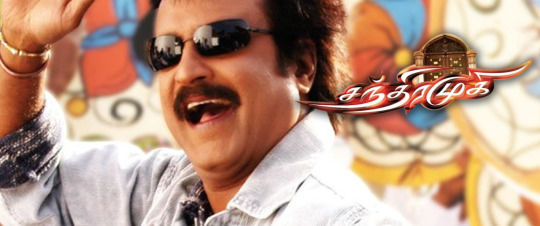
Legacy[edit]
Chandramukhi was well-received in India by critics. In 2006, Rediff listed Chandramukhi in their list of 'Bollywood's Best Tawaif'.[13]Nikhat Kazmi of The Times of India also ranked Chandramukhi at #5 in his list 'Tart with a heart', saying that 'The egotistical Paro may have given her boy friend the goby, but self-sacricficing Chandramukhi was willing to put everything on hold — her livelihood too — for her lover'.[14]
Chandramukhi Serial Full Story Episode
Awards[edit]
Riverbed nightmare pathfinder. There are many actresses who have portrayed Chandramukhi in film adaptations of Devdas. The first notable award was won by Vyjayanthimala in 1956 when she won the Filmfare Awards, known as Bollywood's Oscar,[15] in the Supporting Actress category. However, she was also the first person to decline the award, as she thought that her role was not a supporting one but was of equal importance and parallel to that of Parvathy in the 1955 version.[16] Other actresses who played Chandramukhi in Hindi versions of the novel have also won this award.[13]
The following are awards and nominations received by actresses who have played the role of Chandramukhi in film:
YearFilmNomineeAwardResultNoteRef.1957DevdasVyjayanthimalaFilmfare Award for Best Supporting ActressWonShe refused to accept the award as she thought that Chandramukhi and Parvathi were parallel roles and not a main and a supporting role[17] [18] [19] [20] [21]2002DevdasMadhuri DixitFilmfare Award for Best Supporting ActressScreen Award for Best Supporting ActressZee Cine Award for Best Actor – FemaleNominatedIIFA Award for Best Actress2010Dev.DKalki KoechlinFilmfare Award for Best Supporting ActressWonStardust Award for Breakthrough Performance – FemaleNominated2013DevdasMoushumiBangladesh National Film Award for Best ActressWonMeril-Prothom Alo Award for Best Film Actress (people’s choice)Nom[22]
See also[edit]
Chandramukhi (2005) Tamil film
References[edit]
^Guha, Srejara (2002). Devdas: a novel. Penguin Books. p. 9. ISBN978-0-14-302926-7. Retrieved 17 February 2012.
^Vidya Pradhan (21 Jan 2008). 'Heart of gold, speckled with sin'. The Hindu. Retrieved 16 Feb 2012.
^Ghose, Anindita (August 2006). 'Of Names of Women in Hindi Cinema: An Exploration in Semantics'(PDF). e-Social Sciences. p. 11. Archived from the original(PDF) on 2011-04-10. Retrieved 16 Feb 2012. Madhuri Dixit in ‘Devdas’ (2002) is Chandramukhi which means ‘moon faced’.
^Shubha Tiwari (2005). Indian fiction in English translation. New Delhi Atlantic Publication. p. 151. ISBN978-81-269-0450-1. Retrieved 2012-02-16.
^Corey K. Creekmur (13 December 2001). 'The Devdas Phenomenon'. University of Iowa. Archived from the original on 13 January 2012. Retrieved 18 February 2012.
^Vijay Lokapally (20 February 2009). 'Devdas (1955)'. The Hindu. Retrieved 7 March 2012.
^'Fighting Queens'. Outlook (magazine). 13 December 2001. Retrieved 18 February 2012.
^Allan Koay (2 Apr 2007). 'A new era'. The Star (Malaysia). Archived from the original on 2012-07-11. Retrieved 22 Feb 2012.
^Lindsay J. Proudfoot, M. M. Roche (2005). (Dis)placing empire: renegotiating British colonial geographies. Ashgate Publishing Limited. p. 160. ISBN0-7546-4213-5. Retrieved 18 February 2012.
^Sumita S. Chakravarty (1993). National identity in Indian popular cinema, 1947-1987. Harward Academic Publication. p. 271. ISBN978-0-292-71156-3. Retrieved 18 February 2012.
^Meghnad Desai (2004). Nehru's hero Dilip Kumar in the life of India. Lotus Collection, Roli Books. p. 95. ISBN978-81-7436-311-4. Retrieved 18 February 2012.
^Lata Khubchandani (5 Jul 2002). ''I did not approve of Vyjayanthimala as Chandramukhi''. Rediff. Retrieved 18 Feb 2012.
^ abDinesh Raheja (30 Oct 2006). 'Bollywood's top tawaifs'. Rediff. Retrieved 18 Feb 2012.
^Nikhat Kazmi (16 January 2006). 'Tart with a heart'. The Times of India. Retrieved 20 March 2011.
^Mishra, Vijay, Bollywood Cinema: A Critical Genealogy(PDF), Victoria University of Wellington, p. 9, archived from the original(PDF) on 2012-09-24, retrieved 2012-02-18
^Sheela Bhatt (22 Jun 2012). 'A star spangled evening'. Mumbai, Maharashtra: Rediff. Retrieved 18 Feb 2012.
^'Vyjayanthimala'. Upperstall. Retrieved 16 Feb 2012.
^'The Winners – 1956'. Indiatimes. Archived from the original on 2012-07-14. Retrieved 2012-02-16.
^Subhash K. Jha (2003-02-22). 'Shah Rukh, Ash, Ajay Devgan's rich haul'. Rediff. Retrieved 2012-02-16.
^Raymond Ronamai. 'The winners of the 55th Filmfare Awards are..'Oneindia.in. Retrieved 2012-02-16.
^Bollywood Hungama News Network (2010-01-16). 'Nominations for Max Stardust Awards 2010'. Bollywood Hungama. Retrieved 2012-02-16.[permanent dead link]
^'মেরিল—প্রথম আলো পুরস্কার ২০১��' [Meril Prothom Alo Award, 2013]. Prothom Alo (in Bengali). April 17, 2014.
External links[edit]
Chandramukhi on IMDb
Chandramukhi Serial Full Story Zee Tv
Retrieved from 'https://en.wikipedia.org/w/index.php?title=Chandramukhi_(character)&oldid=992321596'
Chandra MukhiDirected byDebaloy DeyProduced byBubby KentWritten byAnwar KhanStory bySalman KhanStarringSridevi Salman Khan Pran Gulshan Grover Mohnish Behl Puneet IssarMusic byAnand-MilindEdited byMukhtar Ahmed
Release date
Running time
152 minutesCountryIndiaLanguageHindi
Chandra Mukhi is a 1993Hindi-languageIndianfeature filmdirected by Debaloy Dey starring Sridevi, Salman Khan, Mohnish Behl and Pran in lead roles.[1][2][3][4][5]

Summary[edit]
Chandra Mukhi tells the story of Chandra Mukhi (Sridevi), a princess of a heavenly kingdom, who comes down to earth in search of her lost magical leaf. A boy named Raja (Salman Khan) gets the same magical leaf and the adventure starts.
Cast[edit]
Sri Devi as Chandra Mukhi
Salman Khan as Raja Rai
Pran as Rai (Raja's grandfather)
Gulshan Grover as Madan (Raja's Uncle)
Mohnish Behl as Tony
Puneet Issar as Zhola
Tinnu Anand as Santala
Kunika as Lily
Maya Alagh as Chandra Mukhi's mom
Asha Sachdev as Kamini Rai
Tej Sapru as Ghunga
Shiva Rindani as Bob
Avtaar Gill as Yakeemo
Rana Jung Bahadur as Ved
Kim Yashpal as special appearance in song (deleted song)
Soundtrack[edit]
No.TitleSinger(s)Length1.'Aa Paas Aa To Zara'S. P. Balasubrahmanyam, Kavita Krishnamurthy05:022.'Tune Pakdi Kalai'Renu Mukherjee04:033.'Chha Raha Hai Pyaar Ka Nasha'Kumar Sanu, Alisha Chinai06:554.'Maine Pilayee Ke Tune Pilayee'S. P. Balasubrahmanyam04:175.'Mere Honthon Pe Ek Kahani'Anand (Anand-Milind, Kavita Krishnamurthy08:396.'Tere Dil Ki Baat Main Janoo'Kumar Sanu, Alka Yagnik05:207.'Teri Hi Aarzoo Hai'S. P. Balasubrahmanyam, Kavita Krishnamurthy05:548.'Ding dong bell Ding dong bell Apna hai Main' (Deleted song)
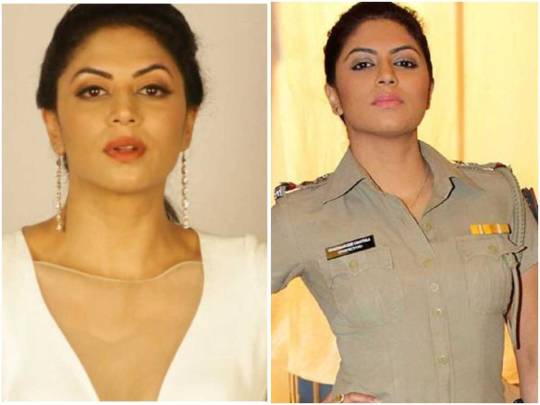

References[edit]
^'Salman Khan's films you might have missed watching'. The Times of India. Retrieved 9 July 2020.
^'rediff.com: Sridevi-Salman Khan, Shah Rukh Khan'. Rediff.com. Retrieved 9 July 2020.
^Poonacha, Sahitya P (15 April 2020). 'What made Salman Khan fear Sridevi alone [Throwback]'. International Business Times, India Edition. Retrieved 9 July 2020.
^'Watch: When Salman Khan Introduced Sridevi as 'The Ultimate Superstar''. News18. 28 February 2018. Retrieved 9 July 2020.
^Bhatnagar, Rohit (2 December 2016). 'Salman Khan to cast Sridevi?'. The Asian Age. Retrieved 9 July 2020.
External links[edit]
Chandra Mukhi on IMDb
Retrieved from 'https://en.wikipedia.org/w/index.php?title=Chandra_Mukhi&oldid=990186770'

0 notes
Text
Scientists figure out molecular mechanism behind latent TB
New Post has been published on https://biotechtimes.org/2019/07/15/scientists-figure-out-molecular-mechanism-behind-latent-tb/
Scientists figure out molecular mechanism behind latent TB
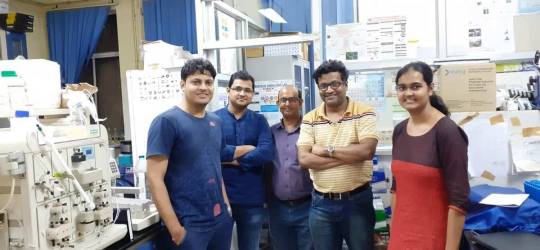
By Sunderarajan Padmanabhan
New Delhi, July 15: Tuberculosis infection results in approximately nine million new cases worldwide every year. The TB-causing bacterium can remain dormant in the human body for a long time, even for several decades before it becomes infectious. The bacterium remains ensconced within a type of white blood cells called macrophages when it is in its latent form.
A team of researchers from Kolkata-based CSIR-Indian Institute of Chemical Biology, Bose Institute and Jadavpur University has figured out how tuberculosis bacterium is released from its reservoir inside the human body.
A macrophage, in fact, is an important part of the immune system. The word ‘macrophage’ literally means a ‘big eater’. It is an amoeba-like organism and its job is to clean the body of microscopic debris and invaders. It has an innate ability to locate and consume invaders such as bacteria, viruses, fungi, and parasites.
However, the story is different with TB bacterium. Instead of killing it, the macrophage creates a sac-like formation called granuloma around it. Granuloma keeps the bacillus contained and under control. The equilibrium can last for even several decades until it gets broken leading to the release of infectious bacteria into the human body. This can happen due to several reasons such as lowered immunity because of physical weakness or infections such as HIV.
Scientists globally have been trying to figure out the molecular mechanism of the release of infectious TB bacteria from the granuloma. The new study by Kolkata researchers could fill this knowledge gap.
The team has discovered that a protein molecule called MPT63 secreted by the bacteria may be playing a role in the release process. Synthetically produced MPT63 protein molecule was subjected to different levels of acidity and it was found that when the acidity value is high its structure changed dramatically. It started as what is called a beta sheet and it turned into a helical form in the acidic condition, which prevails in the matured granuloma.
The protein, which was found to have no apparent function in the folded beta sheet, suddenly became toxic on assuming the helical form, and got into the cell membrane, leading to the formation of pores and consequently the death of the host cells and release of the bacteria.
“Our team would now try to validate these findings in field strains of TB bacillus and see whether they can be used to develop new therapeutic interventions,” said Dr. Krishnananda Chattopadhyay, Head of Structural Biology and Bioinformatics Division at IICB and team leader, while speaking to India Science Wire.
Besides him, the team consisted of Achinta Sannigrahi, Indrani Nandi, Sayantani Chall, Junaid Jibran Jawed, and Animesh. Halder, Subrata Majumdar, Sanat Karmakar. The study results will soon be published in journal ACS Chemical Biology. (India Science Wire)
0 notes
Text
I’m just making this a post and tagging you, @tellywoodtrash because it’s too long to fit into your askbox, and I know you’d once said the IM feature makes you anxious.
Yeah, the title Maryada and its setting had all the red flags I associate with the worst of desi TV but it wasn't at ALL of that ilk. It was actually really thoughtful and interesting and well done. Sure it wasn't perfect but it was the kind of show you'd want to have a *conversation* about. I don't know if the gay storyline was a FIRST but it was a better one than most queerbaiting American shows. Not only were the gay men not comic relief *cue casual homophobia on all “progressive” shows* but they also had an actual happy ending. That is, they weren’t killed off to resolve that conflict and they went off to America or wherever instead. Happy.
Moreover, the women were written as complex, grey, and interesting people rather than your standard desi tv stereotypes. Even the villain was more complex than your average Kamini just because the writing paid attention to chalking out different facets of his life.
But the women. Four women who had to deal with the word ‘maryada’ in different ways. The evil alpha cop (the main villain)’s wife played by Indrani Halder. Her sister, played by Kamya Punjabi. Indrani’s gay elder son’s wife, played by Vindhya Tiwari. And the younger son (played by RaQesh)’s wife played by Riddhi Dogra. Indrani was your perfect wife, perfect matriarch but one who knowingly overlooked a lot of her evil husband’s evil acts. Kamya was her more effervescent sister in a very abusive marriage, who ends up finding solace in her evil brother-in-law after her husband dies. Vindhya was a sweet and naive girl who had unknowingly married the gay elder son since he couldn’t tell his parents and they suspected it but were unwilling to face it. Riddhi had been picked up by the cops for going for a drive with her own fiance and then the cops had raped her (I think) including the evil patriarch, and her fiance her dumped her and her unsuccessful attempt at prosecuting her rapists had only brought her more trouble in the community. But then she’s courted by and eventually marries the younger son of the family, not knowing in the beginning that he’s her rapist’s son.
Basically they all have to deal with a lot of shit but then they come together to defeat the evil patriarch. But along the way there was some unbelievably interesting angles like RaQesh not shaming Riddhi but also them having a conversation about how he as a man is simply incapable of understanding her situation. Then Vindhya feeling jealous of RaQesh and Riddhi’s sex life after they’re married and yearning for the same intimacy with her husband who won’t touch her and she doesn’t know why. Not to mention all the sex Kamya and her husband, and later her evil brother-in-law had-- no ageist restriction of passion to the younger couples. Then a much younger lawyer falling in love with Indrani while he fights her eventual divorce case and helps the women out in other ways. Indrani deciding to NOT marry the younger lawyer in the end and asking him to be friends and him agreeing without a complaint. Vindhya also not remarrying after her husband leaves but just staying with her in-laws and running her own NGO or whatever because she doesn’t want to get married, not because her in-laws won’t permit it. And by the end, ALL the women have successful jobs and careers and live together and bring up the children like a commune with like two men around-- RaQesh and the old grandfather.
So Maryada was a hard but fairly satisfying watch in many ways.
11 notes
·
View notes
Photo

Movie Scene | Indrani Halder and Kunal Mitra | Bengali Movie Sampradan Movie Name: Sampradan (Bengali) Directed By Bappaditya Bandopadhyay Starcast Indrani Halder and Kunal Mitra Watch Full Movie ... source
0 notes
Text
আসছে নতুন ধারাবাহিক ‘শ্রীময়ী’ স্টার জলশায় | Shreemoyi Serial Star Jalsha Indrani Halder New Serial
আসছে নতুন ধারাবাহিক ‘শ্রীময়ী’ স্টার জলশায় | Shreemoyi Serial Star Jalsha Indrani Halder New Serial নিয়মিত বাংলা সিরিয়াল জগতের লেটেস্ট ভিডিও পেতে সাবস্ক্রাইব করুন 💡 সাবস্ক্রাইব করুন:► https://goo.gl/j9c4z9 🔔বেল বাটনটি চাপতে ভুলবেন না➔🔔 ❢🅖🅞 🅢🅞ⒸⒾ🅐🅛❢ Facebook ► http://bit.ly/2EHwOL6 Twitter► https://twitter.com/maxtv_24 Tumblr ► http://bit.ly/2EG6Yq7 Google Plus► https://goo.gl/LvFFpa এক ঘন্টার বিশেষ পর্বে নতুন ষড়যন্ত্রের মুখে বকুল ►https://youtu.be/tNvWOJqBSug দিতিপ্রিয়ার জন্য অশালীন ভাষায় অপমানিত হলে গায়িকা ইমন ►https://youtu.be/UECTrrF-utU ফাঁস হয়ে গেলো ঋভুর গোপন কথা! কে সেই নারী? ►https://youtu.be/DYSbGWjCXAk গান গাইতে গিয়ে লাঞ্ছিত হলেন গায়িকা ইমন! ►https://youtu.be/afu0kJBVIzw নেশায় আক্রান্ত জয়ী ধারাবাহিকের অভিনেত্রী দেবাদ্রিতা বসু! ►https://youtu.be/sY56GOlmOtU আবার ফিরছেন যশ ও মধুমিতা জুটি || সিনেমা নাকি ধারাবাহিক? ►https://youtu.be/9S3Qpbf69Uc 💡 Please Don't Forget to SUBSCRIBE Our Channel ⇙ 💡💡💡 SUBSCRIBE: https://goo.gl/j9c4z9 আমাদের চ্যানেল�� কি বিষয়ে ভিডিও দেখতে চান ??? কমেন্টে জানান !!! Copyright Disclaimer Under Section 107 of the Copyright Act 1976, allowance is made for "fair use" for purposes such as criticism, comment, news reporting, teaching, scholarship, and research. Fair use is a use permitted by copyright statute that might otherwise be infringing. Non-profit, educational or personal use tips the balance in favor of fair use. watch video on YouTube https://youtu.be/feM5wK7tLFs
0 notes
Text
Borof | New Bengali Movie | Indrani Halder | Swatilekha Sengupta | Sataf Figur | Saikat Mitra
Borof | New Bengali Movie | Indrani Halder | Swatilekha Sengupta | Sataf Figur | Saikat Mitra
If video is unavailable then how to watch? Download any VPN and connect to us/uk. Click here this button 👇👇 Click Here If the video shows unavailable? you can also download it. Hellow guys, Welcome to my website, and you are watching Borof | New Bengali Movie | Indrani Halder | Swatilekha Sengupta | Sataf Figur | Saikat Mitra. and this vIdeo is uploaded by Mzaalo Bengali Movies at 2022-09-05…
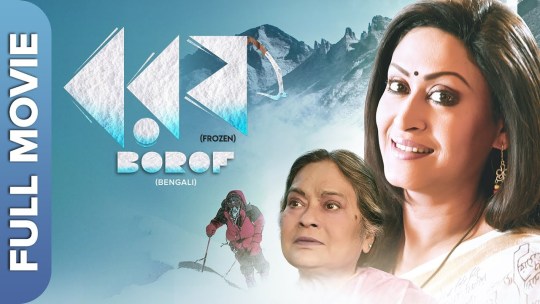
View On WordPress
0 notes
Photo
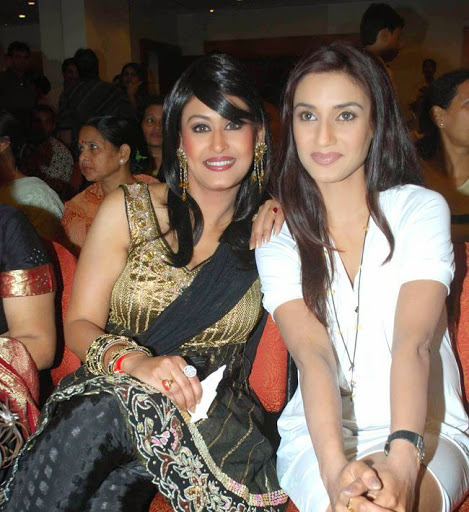
Indrani Halder. Will you get naughty with her and me?
5 notes
·
View notes
Photo

IMAGE CREDIT -INDRANI HALDER> BIRDS & WILD LIFE PHOTOGRAPHY CLUB MY COMMENT- AN FANTABULOUS CLICK. CONGRATS TOMTHE PHOTOGRAPHER. https://www.instagram.com/p/BpASUlOF15PUN0lICK7cyTfZusCI0J4TKDtGcU0/?utm_source=ig_tumblr_share&igshid=17tkt1t0ehx88
0 notes
Text
ঠিক যেন রূপকথা
- By Saswata Barman
…And the Winner is “Rupkatha (রূপকথা)”, announces the anchor!! [Applauses all around the BFI theatre]
Sugato’s first Bengali film has won the ‘Best Foreign Film’ award in the British Film Institute [BFI] International Festival! Amongst the rousing applause, Sugato’s mind wanders away to Kolkata, his Grand-parents’ home, the streets of Kolkata, Rabindra Sarobar, the park, lake, that conversation…… He wonders whether that was a dream or this is!!
[Almost a year back]
Sugato is not enjoying his work anymore. He has delivered many projects year-on- year for 10 years now but this is getting monotonous. He has shared this with his manager who has advised him to take a break. Sugato decides to visit his Grandparents in Kolkata, where he spent the first few of his growing years. Sugato’s Grandfather was an Engineer with the Public Works Department and since his retirement has been engaged in multiple activities including running an amateur club on short film making. His Grandmother is a retired School Principal and he remembers how she introduced him to the world of books – fiction, travelogue, puzzles and what not. Sugato’s Grandparents live near Rabindra Sarobar. He still remembers when he used to go to the lakeside for a walk with his Grandfather and spot the migratory birds!
[Day 7 of Sugato’s trip]
Since he came here in Kolkata, Sugato has spent the entire week catching up with his relatives, childhood friends from the school before his father shifted to London. Today, after waking up in the morning, he thought he needs to relax at home only and what better than reading some books from his Grandmother’s mini library in the third floor! After having breakfast, he walked up to the third floor where all the books are stored in a room in huge bookshelves alongside the walls. There is an arm chair in the middle of the room. Sugato picked a couple of books on Bengali Cinema and started reading. “Wow”, he thought to himself, “I should have read more about this as - Cinema is the reflection of the society and its times”. He kept reading and got completely hooked on to the book…….
There was a noise from downstairs; his Grandfather was going to the lakeside for a stroll and was asking if Sugato wants to join as well. Sugato replied back “আসছি … আমিও যাব”. Sugato’s Grandfather was a strict disciplinarian and asked him to get ready and join him in the lake side near the ঠাকুরদের Gallery.
Sugato reaches the lakeside and can not find his Grandfather. He walks up to the lake and sits on a vacant bench by its side. The childhood strolls around the lake started floating in front of his eyes. He was replaying his childhood and deep into his thoughts.
Suddenly, there was a voice “আমি কি এখানে বসতে পারি?”. Sugato turns his head around and sees this elderly man, probably an octogenarian like his Grandfather.
He says “হ্যাঁ অবশ্যই”.
Elderly Man – “Where do you live?”
Sugato – “I live near the Menoka cinema. Well actually it is where my দাদু and ঠাকুরমা lives. I live in London and have come to visit them.”
Elderly Man – “Oh I see. [pauses for a moment] If you do not mind, what is your grandfather’s name?”
Sugato – “His name is Apurbo Chakraborty. He was a Chief Engineer in the P….” [The Elderly man starts speaking]
Elderly Man – “I know Apurbo very well. He runs this Club for Short film making and I am a big fan of his club. He has inspired so many people to get into film making. I wish we had more people like him” [sighs]
Sugato – “Are you a member of that club as well?”
Elderly Man – [Looks at him] “No I am not, but I have visited his workshop once. I, however appreciate his efforts a lot. It is high time that people start nourishing the rich heritage of Bengali film-making and take it to newer heights!”
Sugato – “It’s a coincidence that I was reading the History of Bengali Cinema collected from the Archive of the Centre for Studies in Social Sciences, this afternoon.”
Elderly Man – “Do you want to know about the beginning of the industry – the Tolly industry as they say these days?”
Sugato - [Sounds excited] “Yes sure! That will be my pleasure.”
Elderly Man – “Bengali cinema had its presence in the last decade of the 19th century. The first cinema shows in Bengal date back to 1896-7. This was around the time when Lumiere Brothers’ Cinematographe in Bombay did the first Cinema show in July 1896. Hiralal Sen of Royal Bioscope company in Calcutta started making short films from around 1900. Cinema in Bengal around that time revolved mostly around the silent films and slowly the talkies were evolving. They were very much at par, if not better than the films being made in Bombay. Over the years, the gap increased in favour of the Bombay industry but Bengal has gifted India and the world some of the finest actors and directors.”
Sugato – “Wow, so which was the first Bengali film?”
Elderly Man – “The first Bengali-language film was the silent feature Billwamangal, produced by the Madan Theatre Company of Calcutta. This was based on the play written by Urdu playwright Agha Hashr Kashmiri. The movie released in November 1919, six years after the first full-length Indian feature film, Raja Harish Chandra, was released. The first Bengali talkies Jamai Shashti, however released on 11th April 1931 at Crown Cinema Hall in Calcutta as a short movie. The first Bengali talkies as a full-length feature film was, Dena Paona, which released on 30th December 1931 at Chitra Cinema Hall in Calcutta. Madan Theatre was a giant film corporation in Calcutta. It was the numero-uno in silent film distribution and many cinema theatres across the subcontinent. Then came Birendranath Sircar’s New Theatres Ltd., established in 1930 and went on to make landmark films in Bengal and Indian film industry like Pramatesh Barua’s Debdas in1935 and Mukti in 1937, Nitin Bose’s President in 1937, to name a few. The studio created star singers like Kananbala and K.L. Saigal.
I hope you are not getting bored?” [Asked the man to Sugato]
Sugato – “No, Not at all. Please carry on.”
Elderly Man – “New Theatres also gave us acting stars like Pahari Sanyal who became well known for their character roles upto the 50’s. The New Theatre also started the practice of remakes in those days as they started double versions of its films, in Bengali and Hindi-Urdu. This gave them a Pan-India market and reach. Another well-known director who was a product of New Theatres was Bimal Roy, a renowned Director in the 50’s who made films like Udayer Pathe that went on to be remade into one of the most popular Hindi films – Humrahi. The 1950’s also gave Bengali cinema two if its biggest stars of all times – Uttam Kumar and Suchitra Sen. The golden years of the 50’s also saw an important film being made that was celebrated much later. Satyajit Ray’s Pather Panchali which released in 1955 and won “Best Human Document” at the 1956 Cannes Film Festival. He went onto make a trilogy and Apur Sansar, the third film of Ray’s Apu trilogy, which had a ‘silver jubilee’ in Calcutta. Apur Sansar introduced Soumitra Chatterjee, who along with Uttam Kumar became Bengali cinema’s top male star and continues to inspire through his movies and theatre shows till today.”
Sugato – “I have heard my grandpa speak about Mrinal Sen….”
Elderly Man – “Yes there was him and Ritwick Ghatak, both Satyajit Ray’s contemporary. Ritwick Ghatak introduced a brand new form of Bengali cinema, that made political statements of their times. Mrinal Sen carried forward the picturisation of social unrest and radical politics of his times. Sen’s Akaler Sandhane in which a film crew recreates the 1943 Bengal famine, won the Silver Bear at Berlin in 1981. Satyajit Ray received an Oscar for his lifetime’s work days before his death in 1992, marking the end of an era. The ‘90s also saw the rise of a Director- Rituparno Ghosh. His films resulted in the Bengali middle class returning to movie halls. In the last 10 years or so, film making has become much matured in Bengal. Directors like Srijit Mukherjee, Atanu Ghosh, Kamaleshwar Mukherjee and many others are making their own brand of movies. But still, there is a lot to be done….”
Sugato – “A lot to be done? What do you mean?”
Elderly Man – “Bengali cinema has lot to offer to the world. The language of cinema is universal and its high time good Bengali films reach to the world audience. Bengalis in general like quality cinema with good storylines but at the same time Bengali film makers sometimes underplay their brilliant work. There should be a common endeavour in this industry to take strength from its glorious history and take the next step forward to make Bengali movies a global phenomenon”
[A voice is heard from an elderly woman]
“Sugato wake up now, it’s time for lunch; take your bath and come down, your Grandpa has returned from his stroll as well”
Sugato stares at the door and hears his Grandpa say “Why did not he come to the lake side as he said…..?”. He looks down at the book in his hands. He has almost finished the book and is on a page that says “50’s – 70’s - the era of Satyajit Ray”……
Sugato has made up his mind. He wants to make a Bengali film and take it to the global audience. He will ever remain indebted to the man, who had this inspiring conversation with him. He said to himself – “ঠিক যেন রূপকথা”!
N.B:
The endeavor to take Bengali Cinema to the Global audience is a reality unlike the fiction above. Storyline Movies was created in Dec 2016 by six Bengalis coming from different walks of life. Led by Acclaimed Director Atanu Ghosh of Abby Sen, Angshumaner Chobi’s fame, the aim of the production house is to make Bengali movies with quality storylines and release them in different languages worldwide. Our first venture is 72 Ghanta directed by Atanu Ghosh and includes actors like Soumitra Chatterjee, Abir Chatterjee, Paran Bandopadhyay, Indrani Halder and many more. To know more and help us with this endeavor please connect with us @
Like our Facebook page – https://www.facebook.com/storylinemovies
Follow us on Twitter - @storylinemovies
Website – http://www.storylinemovies.com
Source of Reference on History of Bengali Cinema - Bengali Cinema: 'An Other Nation' by Sharmishtha Gooptu; published by Routledge.
0 notes
Photo

Movie Review: Strings Of Passion
Review by: Faisal Saif (Rating: 3/5)
I will again repeat, There are times when we see wonderful…
View Post
0 notes
Photo
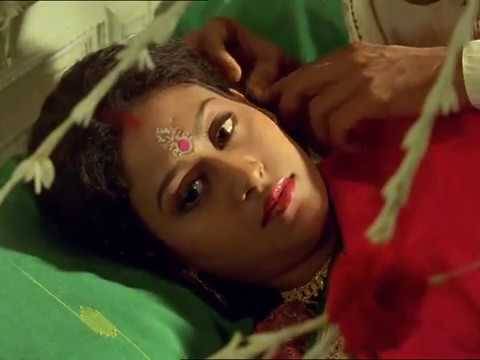
Movie Scene | Indrani Halder and Kunal Mitra | Bengali Movie Sampradan Movie Name: Sampradan (Bengali) Directed By Bappaditya Bandopadhyay Starcast Indrani Halder and Kunal Mitra Watch Full Movie ... source
0 notes
